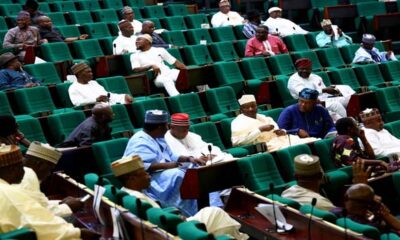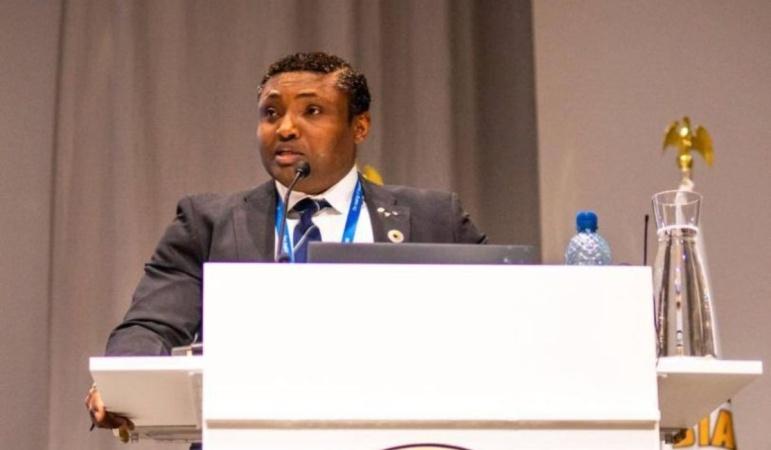Lagos State Governor, Babajide Sanwo-Olu, has introduced a new portal aimed at promoting transparency in the state’s revenue collection processes.
According to a statement released by Gboyega Akosile, the Governor’s Special Adviser on Media and Publicity, the Lagos Revenue Portal (LRP) was launched on Thursday.
The portal is designed to be a user-friendly digital platform, facilitating easy and efficient administration of the state’s Internally Generated Revenue (IGR).
This initiative is expected to enhance transparency and accountability in the state’s revenue collection.
“The portal, which evolved from electronic banking system of revenue cycle management (EBS-RCM), has now harmonised and integrated various collection avenues into a single revenue stream for ease of management, accountability and distribution,” Akosile said.
“The achievement marked a major milestone in the trajectory of the state’s journey towards digitisation of its revenue collection process, the journey of which began in 2001 under the Bola Ahmed Tinubu administration in the state.
“The payer-centric portal leveraged technology for convenience and seamless operations for revenue stakeholders. On the portal, each revenue-generating ministry, department and agency (MDA) has unique generated code to facilitate levy payment without having to physically visit the office.”
Speaking during the launch, Sanwo-Olu described the transition as a “game-changer”.
He said the progress is a testament to his administration’s commitment to innovation, transparency and programmes to improve the ease of doing business in Lagos.
- ‘Portal Removes Barriers To Compliance’
The governor said the state’s digitisation of its revenue collection system has further enhanced its competitiveness in the comity of smart cities, adding that the simplified process has removed barriers hindering the capacity and efficiency of revenue-generating MDAs.
“This is yet another important milestone in our collective effort and bold steps towards transforming Lagos into the most business-friendly state in the country,” Sanwo-Olu said.
“The importance of efficient revenue collection cannot be overemphasised. It is the lifeblood of governance and development. Through it, we can fund critical infrastructure, provide essential services and improve the quality of life for every Lagosian.
“Lagos revenue portal is not just a platform; it is a game-changer designed to streamline the payer enumeration process, making it easier for individuals and businesses to comply with their tax obligations.
“By simplifying this process, we have removed barriers to compliance, which will boost the state’s revenue base. By transitioning to this digital platform, we are promoting a culture of accountability and transparency in revenue collection.
“This portal aligns with our broader vision of making Lagos a smart city, and a place where technology and innovation drive progress.
“By digitising our revenue collection process, we are not only enhancing the ease of doing business but also positioning Lagos as a model for other states in Nigeria and beyond.
“We are setting a standard for governance that leverages technology to deliver efficient and transparent services to the people.”
Sanwo-Olu urged taxpayers and stakeholders in the revenue sector to embrace the innovation, stressing that the initiative is essential to block revenue leakage and enhance transparency.
He said the success of the portal would depend on its adoption by taxpayers it was designed to serve.
The governor encouraged the public to take advantage of the initiative to simplify their interactions with the government, thereby contributing to the growth and development of the state.
“With this platform, we are one step closer to realising our vision of a greater Lagos, where innovation meets governance and progress is inclusive for all,” he added.
Abdul-Kabir Ogungbo, special adviser to the governor on taxation and revenue, said the LRP is a key component of the Lagos strategic revenue framework.
He said the operational aspect of the portal has fully integrated the data and processes of revenue-generating MDAs.
Ogungbo said the portal has also achieved sector-based harmonisation to allow businesses to make single centralised payments to MDAs within the same sector.
“The portal has artificial intelligence features powered revenue enquiry services, real-time channel for enquiries, complaint and support services. We have also achieved harmonisation between state and local government revenue management,” he said.
Ayodele Subair, chairman of Lagos Inland Revenue Service (LIRS), said the new portal will improve operational capabilities and reinforce the trust of the citizens in the government.
Subair said the transition will foster compliance and strengthen the revenue base of the state.
- ‘Revenue Portal Will Empower Citizens’
Akinsanya Doherty, chief executive officer of Alpha Beta Consulting, said the portal will not only simplify revenue collection but will also empower the citizens with the information needed to contribute to the growth of the state.
Doherty said the initiative is a testament to what can be achieved by utilising technology to improve transparency and efficiency.

 BIG STORY2 days ago
BIG STORY2 days ago
 BIG STORY2 days ago
BIG STORY2 days ago
 BIG STORY1 day ago
BIG STORY1 day ago
 BIG STORY2 days ago
BIG STORY2 days ago
 BIG STORY14 hours ago
BIG STORY14 hours ago
 BIG STORY2 days ago
BIG STORY2 days ago
 BIG STORY3 days ago
BIG STORY3 days ago
 BIG STORY4 days ago
BIG STORY4 days ago





















